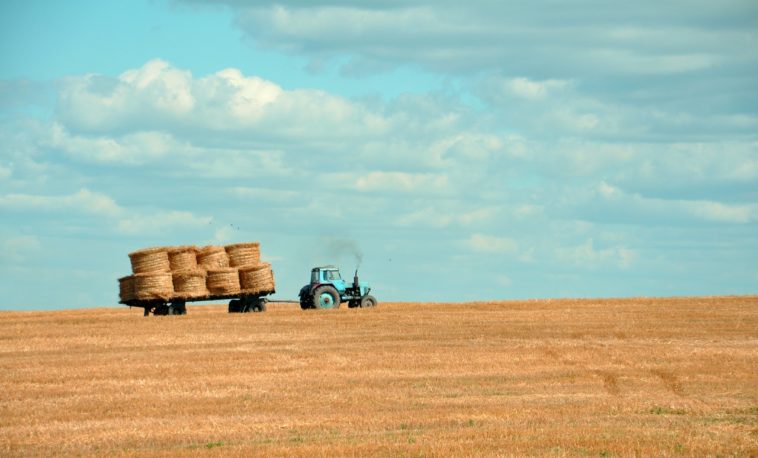TechInAfrica – We promised to report on tech-based startups that are changing their respective industries. We’re making good on that promise by starting with agriculture, the biggest employer on the continent.
Both solutions have a lot in common: they combat fragmented markets, enable producers to increase their incomes and use IT for product quality control and ensure that’d there’s no hanky-panky in the value chain.
We don’t claim that these examples represent all East African agricultural startups. But they do show how startups based on IT and modern business methods can improve the lives of millions of people.
We start with Yield Uganda, whose solution delivers big benefits to small-scale African food producers and international food distributors.
Yield Uganda : Connecting to the International Value Chain
There’s increasing demand for high-quality food grown with reliable, sustainable methods. But don’t tell that to Uganda’s smallholder farmers, who can’t take advantage of this trend. They produce far less food than their potential, because they often can’t meet the reliability and volume requirements of the global food industry. And, they lack the knowledge and access to services and inputs they need to prosper.
Joining Fragmented Markets with IT and Organization
What’s wrong? Let us count the ways. Most small-scale farmers in Uganda:
- Have limited access to credit, insurance services and international sales networks.
- Lack technical skills and knowledge they need to run their business and meet the standards required by international buyers.
- Are at the mercy of middlemen, who take a big cut at the expense of producers.
Yield Uganda is a vertically integrated agribusiness, which focuses on buying, processing and marketing high-quality, sustainably sourced crops in Uganda. They buy products from smallholder producers, who they assist, and then sell those products to buyers for a profit.
A Better Break for Uganda’s Smallholders
The company’s farming contract scheme integrates the yield of hundreds of smallholder farmers into supply chains and guarantees growers markets and a predictable, minimum price for their crops. Yield Uganda works with smallholder farmers by:
- Offering farmers knowledge, extension services and access to inputs such as seed and fertilizer.
- Bringing smallholders into the formal, transparent, international food market.
- Providing producers with fair prices, prompt payment and yield-improving services such as mapping, soil testing, weather services and market intelligence.
This enables smallholders to improve their yields, crop quality and revenues and makes it easier to access credit and insurance.
A More Evenhanded Relationship
If you think that this process makes Yield Uganda a different kind of middleman, you’re right. The key is, different. Information exchange and a transparent process alter the relationship more in the growers’ favor.
But large consumer food brands get a good deal, too. Their benefits include:
- Reliable access to high-quality produce with low primary production risks.
- Ability to trace the exact source of food to the producer level.
- A scalable scheme: network and commodity volumes can be increased at low incremental costs.
- Competitive advantage based on social benefits to small-scale farmers in a fragmented, one-sided market.
There are many agricultural startups that use mobile tech and modern business processes to improve income and elevate farmers out of economic isolation. A Kenyan information exchange is another example.
Mifugo.Trade Online Livestock Exchange
In Africa, livestock husbandry is huge. It supports about 6 million households in Kenya, the home of Mifugo.Trade. As with Yield Uganda, IT plays a central role in, documenting and communicating data and supporting important quality control and financial transactions.
And as in Yield Uganda, IT enables smallholder producers to connect to a market of buyers. In Kenya, the livestock sector is highly fragmented and dominated by small-scale middlemen. Each animal changes hands three to five times. With markup at each stage, producers are left in the lurch and receive very little for their animals.
Changing the Kenyan Livestock Industry
The solution: a mobile-based website and app. It’s an online livestock marketing platform that directly connects livestock producers and buyers. Here’s the process:
- First, livestock assessors, trained in animal husbandry and equipped with smartphones, examine livestock at the farm to ensure proper valuations and quality standards. They take and upload pictures, videos and critical data such as the weight, age and sex of each cow. The documentation ensures that what buyers see (online) is what they get.
- Producers upload their livestock information and set a sale date and minimum price for each animal.
- Buyers can view images of the cattle on the platform and place bids online or with a Mifugo.Trade representative.
- Company representatives keep an eye on the entire transaction and help to arrange transportation for the cattle and transfer of funds. In return, they take a 4.5% commission.
So, what difference does the platform make? A huge improvement for producers and buyers.
- Surging income. Prices of animals sold on the platform are 20% higher than those sold in local markets.
- Lower producer costs. Without a middleman, money—and the cattle—change hands only once.
- There’s nothing up the sleeve. All participants see what’s going on, every step of the way. Buyers know exactly what they are buying and participate in a competitive bidding process. Every step is documented. And, buyers pay only when the animals arrive, and buyers are satisfied.
The Mifugo.Trade story points to great potential. But what about potential downside risk?
Startup Reality Check
Here’s the company’s status:
- Currently self-funded, looking for investors and grant-making organisations. Funds would help company improve their UI and expand their services nationwide.
- Partnered with Keekonyokie, the third-largest private slaughterhouse in Kenya.
- Launch customer is the Mara North Conservancy, which has more than 2,000 members.
- Biggest risk: Human nature, specifically reluctance to try something really new. The Mifugo.Trade process requires big behaviour changes in buyers and sellers. The Big Question: can the company persuade enough slow adopters to do things differently before the money runs out?
Next Time: A look at technology’s role in education startups.





